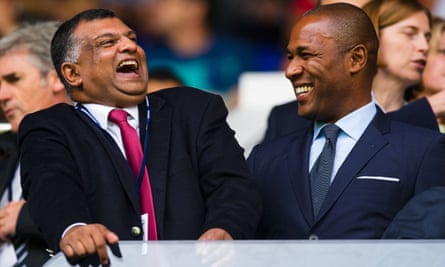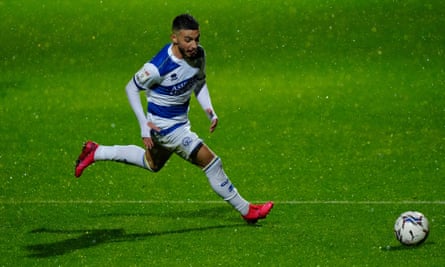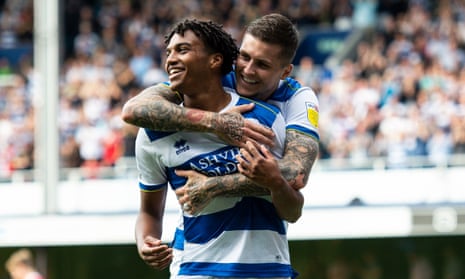Tony Fernandes is discussing whether the pandemic will force football clubs to alter their habits and, in reaching his conclusion, finds a parallel with the sphere in which he made his fortune. “I see it in the airline industry,” the Queens Park Rangers co-owner says. “In the boom times everyone is buying planes like they’re popcorn, then when there’s a recession they cut right back. Then things get better and they go back to being exactly the same as they were. Football will go that way too. Nobody’s really going to learn from this.”
It is persuasive logic given the excesses that persist among the sport’s elite, but Fernandes may be living proof that a leopard can change its spots. During the early years of his decade-long stewardship, QPR were poster boys for the ills of chasing a dream and damning the consequences. They careered out of the Premier League twice, running up eye-watering wage bills and leaving behind a trail of failed big-name signings and managerial appointments. A £42m fine for breaching Financial Fair Play regulations, a punishment Fernandes maintains was harsh, provided strong medicine but their present-day condition is barely recognisable.
A win at Fulham on Saturday lunchtime would mean QPR, sixth in the Championship, leapfrog their local rivals and edge further into the play-off pack. Six and a half years have passed since their last relegation and there is a sense the ship is finally turning. While Derby and Reading take their turns teetering over the financial abyss, Fernandes can enjoy a once-alien sense of relative serenity.
“We’re determined not to make those mistakes again,” he says. “Sustainability is so key for us. I don’t think people outside understand the massive process we had to go through. We stopped and said: ‘We’ve got to do it right,’ even if it meant struggling in the Championship for a few years, and that’s the hardest thing to do. It was a conscious decision, and we found a management team that wanted to build the club up.”
On the pitch, Mark Warburton oversees a steadily improving side that finished ninth last season and are the second tier’s entertainers this time. Only Fulham have scored more, and their games have brought more goals – 38 – than those involving any other club. In the boardroom, Lee Hoos has a well-established reputation as one of the division’s most financially astute chief executives and the director of football, Les Ferdinand, implements a plan to revive the club that made his name.

“I walked into a Premier League club on the decline, where I think everyone had resigned themselves to relegation,” says Ferdinand, looking across the Kiyan Prince Foundation Stadium pitch, where he scored goals for fun in the early 1990s. “You had people on big contracts who believed they were still top-flight players after we went down. There was a divide and it became a pretty toxic environment. We brought in new players, but some got caught up in it and we had to change them too. It was a long process but we are over that period now. The club has been refreshed: you’ve got people who want to improve themselves, and to do it here.”
Ferdinand points out that QPR had few saleable assets when he returned late in 2014. The picture is different now: Ilias Chair, the Morocco playmaker, would attract a sizeable fee while his fellow 23-year-old Chris Willock is building on early promise shown at Arsenal and Benfica. The Scotland striker Lyndon Dykes has been superb in 2021-22 after a patchy first season. There is a succession plan to ensure older players such as the captain Stefan Johansen, signed from Fulham, are eventually replaced by players such as the former Ipswich midfielder Andre Dozzell. “There’s value in the squad that we didn’t have before,” Ferdinand says.

Continuing to find that value will guide their progression. Last year’s £19.5m sale to Crystal Palace of Ebere Eze, picked up for nothing after being released by Millwall, helped facilitate the acquisitions of Willock and Rob Dickie, an outstanding centre-back signed from Oxford. Now QPR hope a fertile academy will complete the picture. Last week they opened up a bond to supporters and investors, which will part-fund a new £20m training ground. It is offered via Tifosy Capital and Advisory, which was co-founded by the former Chelsea striker Gianluca Vialli, and echoes a successful scheme rolled out with Norwich in 2018. Planning permission was granted in September; it will mean academy players are no longer based away from the first team and Ferdinand believes it is a crucial step.
“For a young player, the finishing line looks a long way off when you’re on split sites,” he says. “When I arrived as a player, we always had that tradition of homegrown products coming through the system. Football has changed, but QPR’s unique selling point should be: ‘OK, you can go to one of the other London clubs but you’ll have a better chance of playing in our first team than theirs.’”
The thought occurs that QPR’s ownership have struck lucky: in other situations, a hierarchy that flew so traumatically close to the sun might have been detested. On the other hand, it took some skill to avert a freefall into League One. It helps that Fernandes has always been honest about the mistakes of those naive early years: he says the toughest lessons were “that people can take a wage and not really care … and that people can be less than truthful in the football business”. The supporters have stayed on-side and Fernandes is not joking when he calls them “one of the most financially aware bunches of fans in the country”.

QPR have, he explains, “gone back to grassroots and managed expectations”. It is fair to say they are exceeding them given that their wage bill, which reached £75m under Harry Redknapp in 2013-14, was a relatively paltry £20m in their most recent accounts. That is at the Championship’s lower end and their £16.4m loss was also towards the bottom. Fernandes may hold little hope for football’s wider ability to tighten up, but he sees a club that has emerged smiling from its spell of pain.
“It’s been a school of hard knocks,” he says. “Eventful, and some of it your own doing. It appears we’re heading in the right direction and that there’s light at the end of the tunnel. We’re putting in some of the right seeds to reap the rewards.”
